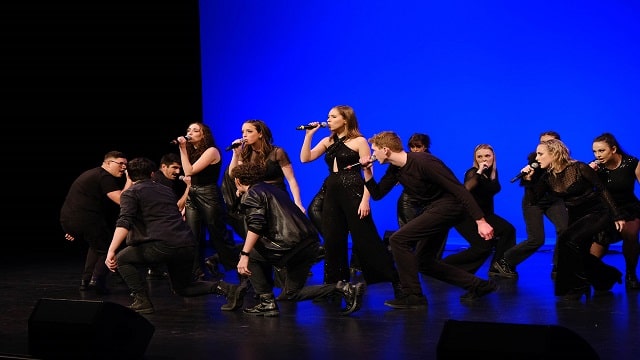A Cappella: In musical performances, the human voice is usually accompanied by an instrument or a microphone that complements the sound effects of the voice. However, sometimes singers show their vocal prowess without any type of complementary resource and sing with their voice as the only instrument. When this occurs, it is sung a cappella. Logically, this way of singing has a high degree of difficulty and, at the same time, involves certain risks, since any small mistake is revealed to the audience.
Whoever sings a cappella does so live, without playback, without instrumental accompaniment, and without any type of artificial musical effect (in many musical performances the human voice is corrected digitally, for example with voice synthesizers).
Know More Meaning: A Posteriori Meaning – Definition & Synonyms
The origin of the expression “singing a cappella”
The expression “singing a cappella” comes from Italian, specifically from the word chapel or church. Therefore, “a cappella” literally means “as in the chapel.” It must be taken into account that in the past the use of musical instruments was prohibited in churches, so singing was done with the voice as the only element. Thus, singing a cappella refers to the songs that took place in churches.
Until the Middle Ages, the only music in churches was Gregorian chants and it was from the 15th century onwards that the use of other musical instruments other than the human voice was introduced.
Know More Meaning: A Priori Meaning – Definition & Synonyms
Musical terms of Italian origin
A cappella is an Italianism that is part of our language. In musical terminology, other words that come from Italian are used. There are numerous examples in this sense: mezzo-soprano, opera, a loudspeaker (comes from a loudspeaker), piano, sotto-voucher or in a low voice, allegro (a musical composition), adagio ( movement of a musical piece), aria, cantata, double bass, quartet, fermata, minuet, score, quintet, serenade or cello.
These examples force us to ask ourselves the following question: why is Italian so linked to the musical language? There is not a single answer, but several:
1) musical writing as we know it was consolidated in Roman civilization and later this tradition was strengthened in the Italian musical tradition (the words used in the scores are mostly Italian and almost all come from Latin),
2) some musical genres are Italian (such as opera),
3) some instruments were invented by Italian craftsmen (the best known are the violin and the cello).
